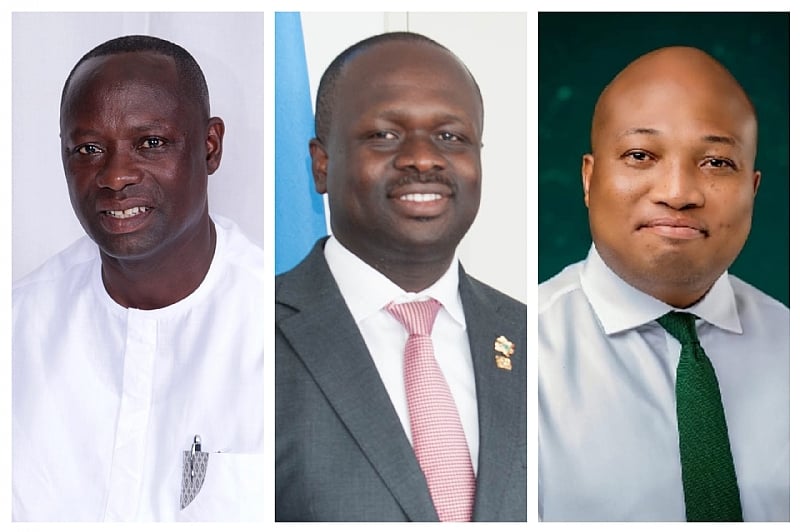The Appointments Committee of Parliament is set to embark on a crucial phase of its mandate, commencing on Tuesday, January 28, 2025. This final round of vetting will scrutinize the qualifications and suitability of President John Dramani Mahama’s remaining ministerial nominees, individuals entrusted with leading key ministries and regions within his administration. Having already vetted and secured parliamentary approval for several nominees in earlier sessions, the committee now turns its attention to this last cohort, whose successful vetting will complete the formation of President Mahama’s government. The decisions made during these proceedings will significantly shape the direction and effectiveness of the administration in addressing the nation’s priorities.
The week-long vetting process is meticulously scheduled, with each day dedicated to assessing a specific group of nominees. On Tuesday, January 28th, the committee will evaluate Emmanuel Armah-Kofi Buah, nominated for the Ministry of Lands and Natural Resources; Dr. Edward Omane Boamah for the Ministry of Defence; Emmanuel Kwadwo Agyekum as State Minister for Special Initiatives; Adjei Kenneth Gilbert for the Ministry of Works, Housing, and Water Resources; and Linda Obenewaa Akwetey Ocloo as the Greater Accra Regional Minister. These individuals bring diverse backgrounds and experiences to the table, and the committee’s assessment will delve into their capabilities to effectively manage their respective portfolios.
Wednesday, January 29th, will see the vetting of Abdul-Rashid Hassan Pelpuo, nominated for the Ministry of Labour, Jobs, and Employment; Ibrahim Murtala Muhammed for the Ministry of Environment, Science, and Technology; Kofi Iddie Adams for the Ministry of Sports and Recreation; Joseph Bukari Nikpe for the Ministry of Transport; and Issifu Seidu as State Minister for Climate Change and Sustainability. The focus on these ministries highlights the government’s commitment to addressing crucial areas such as job creation, environmental protection, and sustainable development. The committee will rigorously assess the nominees’ expertise and vision for these critical sectors.
The following day, Thursday, January 30th, the committee will turn its attention to Ibrahim Tia, nominated for the North East Region; Samuel Nartey George for the Ministry of Communications, Digital Technology, and Innovations; Samuel Okudzeto Ablakwa for the Ministry of Foreign Affairs; Kwabena Mintah Akandoh for the Ministry of Health; Mrs. Charity Gardiner for the Ahafo Region; Felix Kwakye Ofosu as State Minister for Government Communications; and Wilbert Petty Brentum for the Western North Region. These nominations reflect the government’s focus on key areas such as technological advancement, international relations, and healthcare provision. The committee will assess the nominees’ ability to navigate the complexities of these portfolios and effectively represent the government’s interests.
The vetting process continues on Friday, January 31st, with Dr. Frank Amoakohene nominated for the Ashanti Region; Akamugui Atanga Donatus for the Upper East Region; Salisu Be-Awuribe Issifu for the Savannah Region; and Joseph Nelson for the Western Region. These regional ministerial nominees will be tasked with overseeing the development and governance of their respective regions, necessitating a deep understanding of local issues and the ability to effectively engage with diverse stakeholders. The committee will assess their capacity to address the unique challenges and opportunities within their regions.
Concluding the vetting process the following week, on Tuesday, February 4th, the committee will evaluate Francis Owusu Antwi, nominated for the Bono East Region; Edumoah Ekow Panyin Okyere for the Central Region; and Puozuing Charles Lwanga for the Upper West Region. These final nominations complete the slate of regional appointments, and the committee’s thorough assessment will ensure that capable and qualified individuals are entrusted with leading these regions towards progress and prosperity.
The comprehensive vetting process undertaken by the Appointments Committee of Parliament serves as a critical check and balance within the democratic system. By meticulously scrutinizing the qualifications, experience, and suitability of ministerial nominees, the committee ensures that individuals appointed to these crucial positions possess the necessary skills and integrity to effectively serve the nation. This rigorous evaluation strengthens public trust in the government and reinforces the principles of accountability and transparency. The decisions made during these vetting proceedings will have a profound impact on the composition and effectiveness of President Mahama’s administration, ultimately shaping the future direction of Ghana’s governance.


